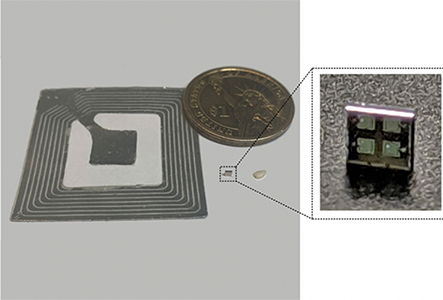Yazicigil on Track to Monitor the GI Tract

“This is an ingestible sensor that will track and record the inflammation of the GI tract in a continuous and minimally-invasive manner, and especially tailored toward an individualized response for each patient’s disease,” said Yazicigil.
Yazicigil’s team in collaboration with MIT is currently developing a mm-scale ingestible micro-bio-electronic device by leveraging the natural advantages of biological systems in sensing and electrical devices in computation and wireless communication.
“The difference between this method and some of the existing methods is that we are obtaining high-resolution data which means it could tell you the onset of acute disease episodes (flares) and allow for better disease management and early intervention,” said Yazicigil.
Yazicigil also worked with MIT researchers on the cryptographic “tag of everything,” which showcases the team’s work on the authentication of ID tags operating at terahertz (THz) frequencies to mitigate counterfeiting. Their work was published at the 2020 IEEE International Solid-State Circuits Conference (ISSCC), a leading meeting in the field of integrated circuits, and also reported in the MIT News. “This small tag (roughly 1.6 square millimeters) is packageless so it doesn’t require any additional packaging costs and contains a low-power cryptographic processor.” explains Yazicigil.

丫
Professor Yazicigil received her PhD degree from Columbia University in 2016 and joined Boston University in 2018. She is the principal investigator at the Wireless Integrated Systems and Extreme Circuits (WISE-Circuits) Laboratory.